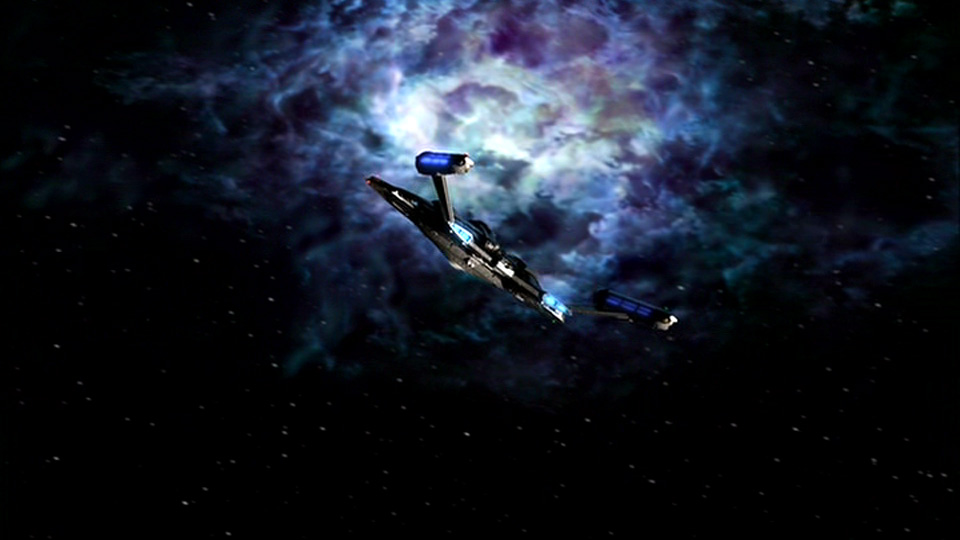Subscribe: Apple Podcasts | Spotify | RSS | More
It’s been a long road… but the end is finally here. The Pensky Podcast has finished our coverage of Star Trek: Enterprise! In this Enterprise Season 4 & Series Wrap Up, Wes and Clay share how they feel about the final season and the series as a whole. This is the first Star Trek series that we’re ABSOLUTELY sure that Clay has seen every episode – so what did he think? And will he return?
The Memory Alpha summary of Enterprise Season 4:
The fourth season of Star Trek: Enterprise concludes the Temporal Cold War story arc that had been a staple of the series since “Broken Bow“. The remaining episodes of season four refocus Enterprise on the series’ original prequel concept by exploring cultural shifts on Vulcan; establishing the beginnings of conflict between Earth and the Romulans; explaining the difference in appearance between the Klingons of The Original Series and those of Star Trek: The Next Generation; giving an insight into the mirror universe prior to any crossover with the prime universe; and exploring the obstacles Humanity must overcome before allying with alien species.
Launched in the year 2151, the NX-class starship Enterprise (the first of United Earth‘s advanced warp five vessels) was at first on temporary assignment. Though years of preparation still lay ahead, the ship was unexpectedly put into service when a Klingon national crash-landed on Earth, putting the entire planet at stake should he not make it back to his people. Under the command of United Earth Starfleet Captain Jonathan Archer, son of the famed scientist Henry Archer, the crew of Enterprise succeeded in their mission, but found themselves surrounded by deeper mysteries. Warranting the extension of their assignment into a full-blown mission of deep space exploration, the crew of Enterprise set off into the unknown, taking with them a Vulcan science officer (or chaperone) named T’Pol and a Denobulan doctor named Phlox.
Enterprise‘s first years were rocky; while the ship made contact with such species as the Suliban and the previously mentioned Klingons, such contact was not peaceful. In its first two years alone, the ship’s crew found themselves in armed conflict with a range of species from the Tholians to the Coridanite to the Borg… and things only got worse. By its third year in space, an alien species known as the Xindi brutally attacked Earth, killing millions.
The NX-01 was dispatched to a remote and previously uncharted area of space known as the Delphic Expanse in order to prevent the Xindi from completing their ultimate goal of destroying Humanity. While the mission was successful, after nearly a year in the Expanse, the ship suffered severe damage and many losses.
Upon returning home, Enterprise served a more diplomatic role in the service of United Earth, easing relations between the Vulcans, the Andorians, and the Tellarites, and paving the way toward a Coalition of Planets, an alliance that eventually lead to the founding of the United Federation of Planets. Though still often tumultuous, Enterprise continued its mission of exploration as well, bringing Humans in contact with even more new worlds and new civilizations.
In this episode of the podcast, Wes and Clay discuss Star Trek: Enterprise’s fourth season. They also give their overall thoughts about the series and where it stands in relation to its sister shows. Plus! They talk about the best and worst of the series, the end of “90’s” Star Trek, and what’s next for the podcast.
